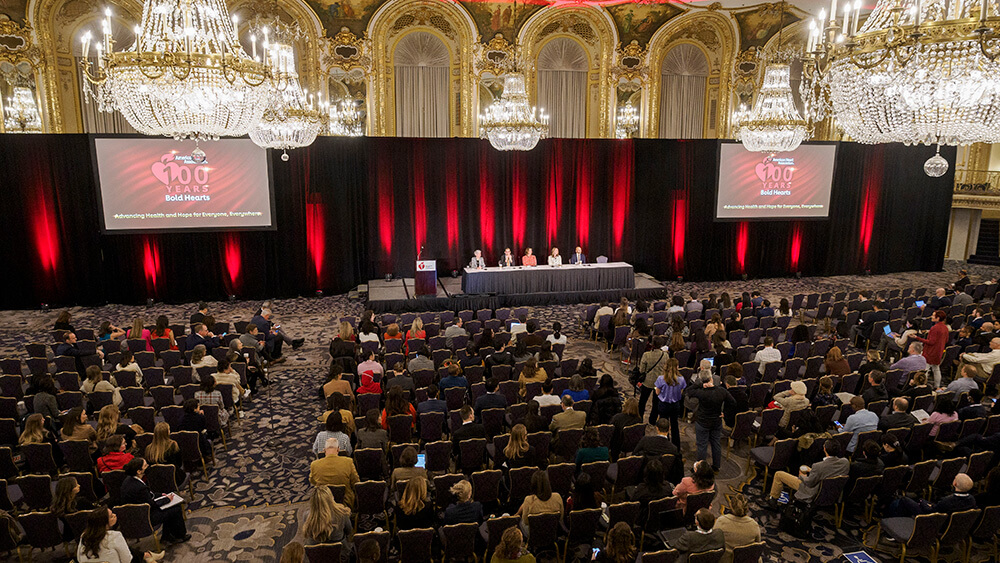
New research presented at AHA’s Epidemiology and Prevention/Lifestyle and Cardiometabolic Scientific Sessions 2024, held in Chicago in March, challenged beliefs about the effects of intermittent fasting on the body. (AHA/Todd Buchanan 2024)

Michelle Russell
Editor in Chief
A recent Forbes article extolled the virtues of intermittent fasting — abstaining from food for 16 hours in the day and consuming all your calories in an eight-hour period. The physician author cited research studies that found that intermittent fasting was associated with higher weight loss as well as cardiovascular benefits, including significantly lower cholesterol levels.
Just a day after that article appeared online, the American Heart Association (AHA) published the results of a 20,000-plus-person study: Those who followed the eight-hour time-restricted diet had a 91-percent higher risk of death from cardiovascular disease.
Like many breakthroughs in science, medicine, tech, and just about every other category, this research went out into the world because of a conference — the findings were presented at AHA’s Epidemiology and Prevention/Lifestyle and Cardiometabolic Scientific Sessions 2024, held in Chicago in March.
In the press release announcing the study results, AHA noted that abstracts presented at its scientific meetings are not peer-reviewed, but “curated by independent review panels and are considered based on the potential to add to the diversity of scientific issues and views discussed at the meeting.”
And while the results are preliminary, “this study suggests that time-restricted eating may have short-term benefits but long-term adverse effects,” said Christopher D. Gardner, Ph.D., FAHA, a Stanford University professor of medicine and chair of the writing committee for the association’s 2023 scientific statement on popular dietary patterns.
Surprising as the study is, the press release’s depiction of the meeting — featuring the earmarks of traditional knowledge dissemination at medical events, like review panels, abstracts, and committees — is less so. Other sectors have radically changed how participants experience their event programs post-pandemic, but there are very good reasons why medical events overall have not.
RELATED: The Anti-Diet Movement on Display at an Event for Dieticians
Christine Melendes, CAE, associate executive director of operations and business development for the American Epilepsy Society (AES) recently told me that their annual meeting has stayed true to its traditional approach because they understand that is what their members want. For example, the educational program still starts at 7:30 a.m. and sessions continue until 8 p.m. — “They’re in it to win it,” she said.
But there have been “evolutions” to their program based on strategic objectives, the most significant of which is to add “different voices” to the sessions, Melendes said, like the perspectives of allied health providers and patients themselves. “I think that was the turning point for some of the education,” Melendes said.
AES continues to take a very intentional approach to the speaker selection process for its next annual meeting in Los Angeles in December, she said, making sure, for example, to include early-stage professionals and those representing diversity — much like AHA’s mission to provide different viewpoints for discussion at their meeting.
Food Fest
While we’re on the subject of diet — and legacy events — be sure to check out the March/April issue’s Social Impact story by Managing Editor Casey Gale about Grow-NY, a regional food and agriculture competition/trade show/educational conference that has reaped the benefits of online international participation since the pandemic.
Michelle Russell is editor in chief of Convene.
